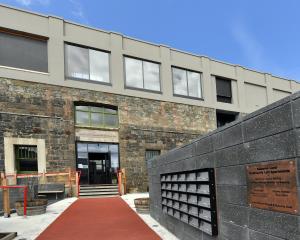Proposals to introduce voluntary membership of student associations could badly damage the quality of student life at the University of Otago and harm Dunedin's economy, the Australian student president, David Barrow, says.
Mr Barrow, who is president of the National Union of Students in Australia, is visiting New Zealand.
Act New Zealand MP Sir Roger Douglas' private member's Bill, calling for voluntary student membership, is being considered by a parliamentary select committee.
The existing legislation, which became law in 1998, allows individual tertiary institutions to hold referendums to decide whether their respective student association membership should be voluntary or compulsory.
When, in April 1999, more than 7100 Otago University students voted in a referendum under this law, 78.5% of them backed compulsory membership.
Mr Barrow said that an Australian law change several years ago which required voluntary membership had since "devastated university life and student culture" in many Australian universities.
Two recent major reports, one from the Australian Education Department, had highlighted the resulting damage, including about $170 million being stripped from student services and amenities in Australia.
More than 1000 jobs had been lost in student services areas.
Potential job losses could also be a concern in Dunedin, he said in an interview.
Campus sports and cultural clubs which previously had played a positive role in the wider student experience had been "severely reduced and undermined" in Australia, with sports club funding cut by 40%.
He noted that a high proportion of Otago University students came from outside Otago, and they were partly attracted by the quality of student life at Otago, including student sports and culture.
The worst effects in Australia had also been in secondary population centres, which should concern Dunedin civic leaders and members of Parliament, he said.
The Dunedin economy could be damaged if the Otago University campus became less attractive to out-of-town students, he warned.
Some of the main Australian universities had retained some student services previously undertaken by student associations, but that had meant diverting funding which would have otherwise been spent on teaching and research, he said.












